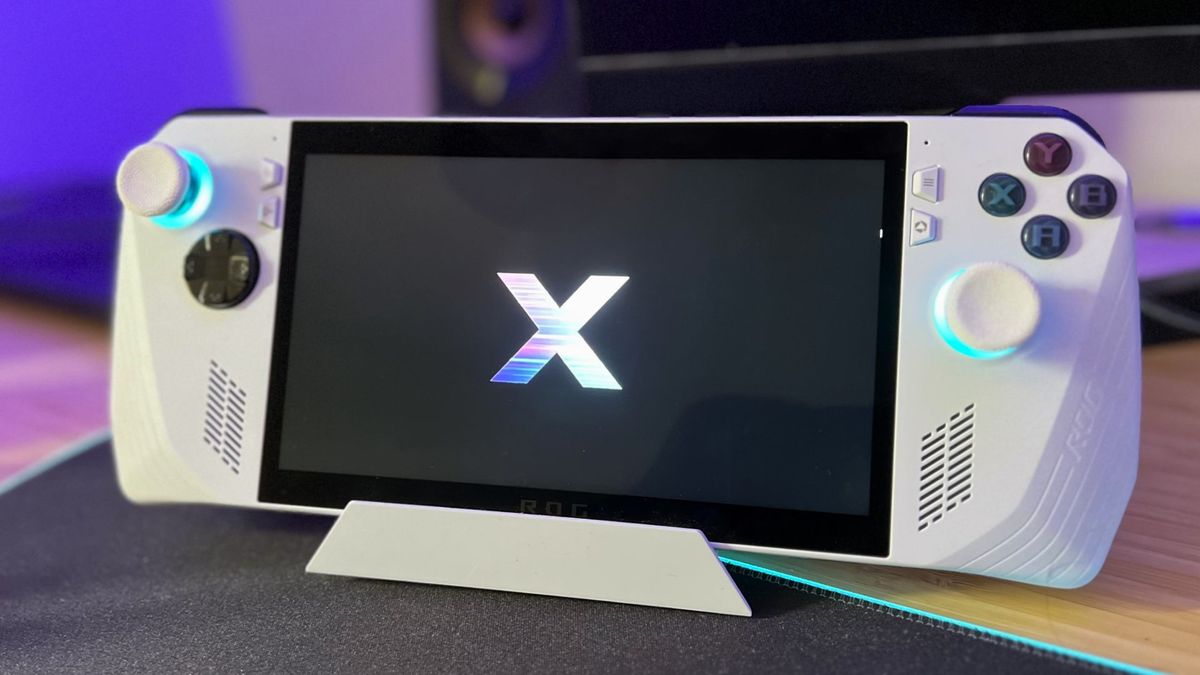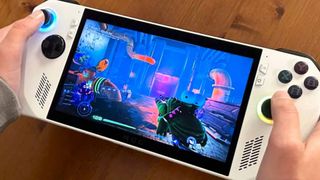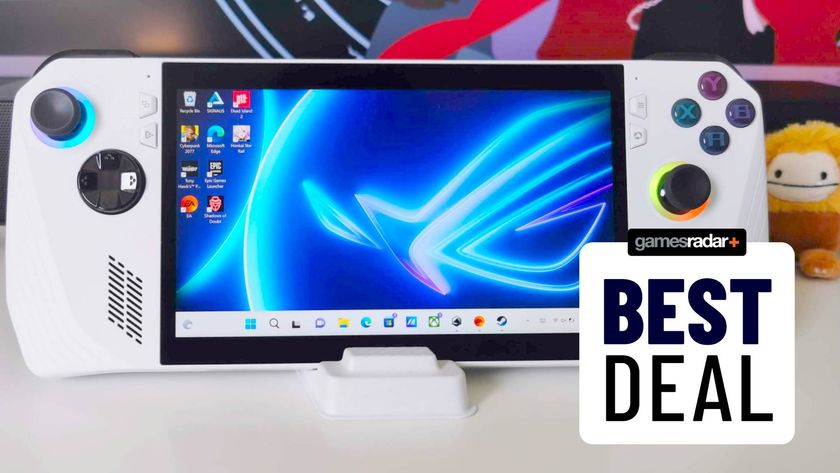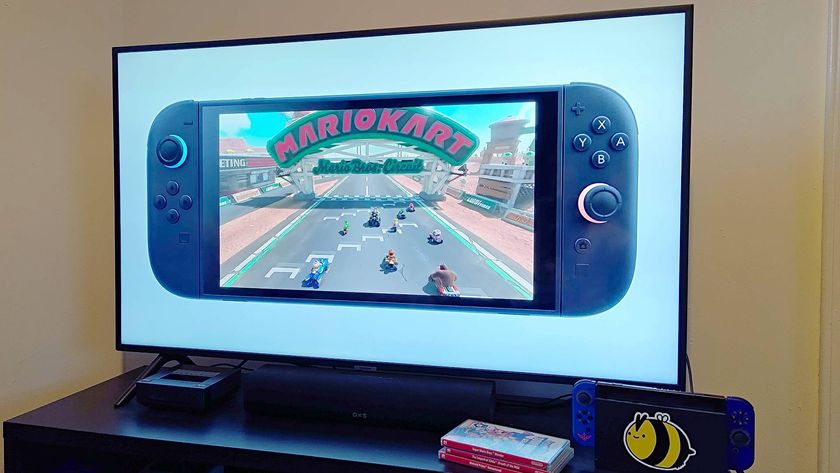The next Asus handheld isn’t the ROG Ally 2, but I’m still hyped for a refresh
The Asus ROG Ally X is officially coming

Asus has finally broken its silence on the ROG Ally 2, but not in the way you’d think. Rather than releasing a next-gen handheld sequel, the company has confirmed that a revamped version of the original portable is coming, and it’ll apparently combat one of the biggest pitfalls of PC gaming on the go in 2024 – battery life.
Look, I love using the best gaming handhelds, but both the Asus ROG Ally and Steam Deck OLED are a bummer when it comes to runtime. If you’re playing an indie game or a classic caper, you might be able to get a decent session in without reaching for a charger. However, trying to play shiny new releases usually leads to a cable or battery bank hanging out of your sleek device, spoiling any attempts at crafting a lightweight experience.
In Thursday’s short live stream, Asus’s senior marketing manager Whitson Gordon confirms the ROG Ally X is “more than just a basic refresh with one spec change.” Instead, it’ll target the “enthusiast who wanted a bit of extra goodies,” with all the changes being based on feedback from the community. Yes, I know that’s pretty vague, but while we’ll need to wait a little longer for specs, the hosts did touch on a few things to expect.
As I already spoiled, Asus plans to shove a chonkier battery into the ROG Ally X. Again, no specifics, but the stream’s host Jake Kulinski says it’s “not a small improvement.” In a chat with The Verge, the company’s senior vice president Shawn Yen gives us a bit more to play with by stating that it’s “way more” than a 30-40% capacity increase, which is slightly bananas. In addition, the SVP touches on the fact that “battery might be something people desire more than a lighter-weight device,” almost confirming that it’ll be justifiably heavier than the OG handheld.
Other changes include tweaks to the portable’s RAM, storage, and ports, alongside some potential physical changes. It’ll still use an AMD Ryzen Z1 Extreme APU, and while the ROG Ally X will seemingly stick with “the same VRR display,” Gordon teases us by saying there’s also “more on that.” We’ll have to wait and see whether that means we’re actually getting an OLED upgrade or something less exciting, even though the former will almost certainly bump its MSRP even higher.
Is the Asus ROG Ally X worth waiting for?

Normally, I wouldn’t be that excited about a revamp, even though Valve has proven that small changes can completely change the game. From the sounds of things, the Asus ROG Ally X is taking a similar approach, producing a device that addresses drawbacks with the first attempt. For me, the extra battery life is a big draw, as it’ll theoretically save me digging through my Steam Deck accessories bag for a power bank when playing on a handheld.
If it’s higher frame rates you’re craving, I’m about to burst your bubble, as the ROG Ally X should produce the exact same processing power as the original. That’s not remotely a bad thing, as the Ryzen Z1 Extreme is an excellent chip, and you’ll need to fork out for something like the pricey Ayaneo 2S to boost fps. That said, it does mean the original will be well worth picking up, particularly if it dips back down to $599.
Sign up to the 12DOVE Newsletter
Weekly digests, tales from the communities you love, and more
Price is going to be the ultimate factor in whether to buy the Asus ROG Ally X or the original, but I’m still hyped about the refreshed handheld. It feels like the company gets it, as most of the hinted changes feel like things players will benefit from rather than gimmicky features for the sake of it. Ultimately, we’ll need to wait for the portable PC’s official reveal on June 2 before knowing if its specs and price tag are worth the up-spend, but I’ve got a good feeling about this ROG Ally 2 stopgap.
Already got Valve’s portable? Swing by the best Steam Deck dock options for our top picks. Alternatively, take a peek at the best gaming PCs and best gaming laptops for powerhouse rigs.

I’ve been messing around with PCs, video game consoles, and tech since before I could speak. Don’t get me wrong, I kickstarted my relationship with technology by jamming a Hot Wheels double-decker bus into my parent’s VCR, but we all have to start somewhere. I even somehow managed to become a walking, talking buyer’s guide at my teenage supermarket job, which helped me accept my career fate. So, rather than try to realise my musician dreams, or see out my University degree, I started running my own retro pop culture site and writing about video games and tech for the likes of TechRadar, The Daily Star, and the BBC before eventually ending up with a job covering graphics card shenanigans at PCGamesN. Now, I’m your friendly neighbourhood Hardware Editor at GamesRadar, and it’s my job to make sure you can kick butt in all your favourite games using the best gaming hardware, whether you’re a sucker for handhelds like the Steam Deck and Nintendo Switch or a hardcore gaming PC enthusiast.
Most Popular









